'A Better World' Ireland's International Development Policy - Expert Analysis
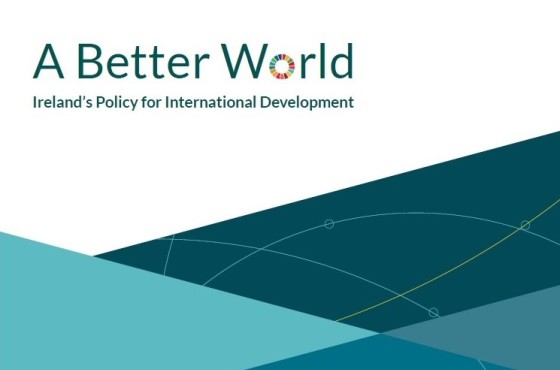
Expert Analysis
14 Mar 2019
Following the launch of A Better World, the Irish Government’s new international development policy, in February 2019, we reached out to a range of experts to get their perspective on the new policy and to hear their thoughts on what success will look like by 2030.
Read the contributions below
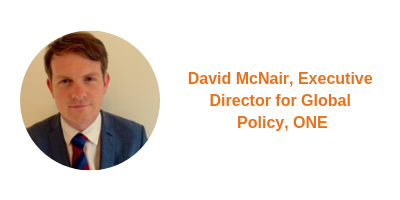
Ireland’s new development policy will put Ireland back on the world stage as a development leader. Ireland already has a track record of prioritising the poorest countries; it is the only donor country that provides more than half its funding to the least developed countries.
This strategy shows the foresight required to be a twenty-first century development leader: an emphasis on prioritising the farthest behind, particularly women and girls; a focus on health and education; a track record on aid effectiveness, and an emphasis on taking a whole of government approach to development policy and addressing the impact of domestic policy on development. Ireland could also make the most of its role as a tech hub to bring development policy and programming into the digital era.
Reaching the 0.7% target is important given the scale of the need and will help cement Ireland’s role as a development leader. It will also give Ireland the clout to influence the development priorities of the EU and UN agencies. But these aid increases should be front loaded to help fill the huge financing gaps which need to be filled to meet the Sustainable Development Goals by 2030.
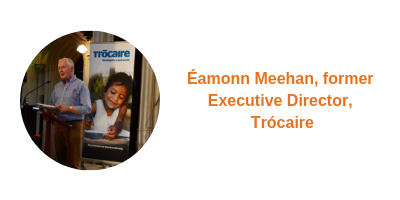
Ireland’s new policy for international development, A Better World, provides a very sound basis for the expansion of the programme over the next decade. It is clear, focused and good on the political, economic and social challenges ahead. It’s a very welcome document and the political statements in the Forewords give it added weight.
There are a few points I would like to make.
On financing, hopefully we won’t face the same challenges as in the early years of the century when several excuses were put forward for not reaching the 0.7% target. Firstly, the economy was growing so fast we couldn’t possibly meet the target as the programme would become unmanageable, and then the economy was so bad we couldn’t possibly meet the target. (Note here the caveat in An Tánaiste’s Foreword “especially if economic circumstances change”).
I think it’s very important to build the capacity of Irish Aid now. This should be done at an early stage to make it easier to manage increasing resources and ensure sufficient strategic capacity in the Division. There may be obstacles to this in terms of public service growth but I’m sure there are ways around it. We don’t need to be in a position in five years or so to be told that the capacity doesn’t exist to manage a bigger programme.
Policy coherence is always a challenge in Government with competing interests and problems around policy alignment. This is one area where I think much more can be done. One key example is in the area of climate justice. We cannot put responding to climate change at the heart of our policy while at the same time long-fingering action at home or putting in place a policy that pushes climate action out to the 2030s. We live on a vulnerable planet and honesty is now required in the response to climate and environmental chaos above all else.
I hope that in the coming years Ireland will work to keep the OECD DAC donor community as a strong and progressive platform on international development. It has been under pressure in recent years with attempts to re-define ODA to enable the use of funds in donor countries and for attempts to keep vulnerable people out of Europe. These challenges to the DAC’s integrity are likely to increase with the departure of the UK from the EU and greater uncertainty about the direction of policy in the UK.
One area where I think the policy could have been more progressive is in stating clearly the fundamental value of human rights and that the policy is based on an understanding and respect for these values. You could say it’s implicit in the focus on the Sustainable Development Goals (SDGs) and there are a small number of references to human rights in the document. However, the failure to frame the policy in a human rights context is a bit worrying especially in the context of An Tánaiste’s statement in his Foreword that this is based on “strategic self-interest” and is an “essential foreign policy tool”. For example, the Government’s failure to support the Occupied Territories Bill is an example of expediency trumping values.
From the perspective of Dóchas and the NGO community, there is strong recognition in the policy about the role of Irish NGOs and missionaries and the need to protect and advocate for civil society globally. This is very welcome at a time of great vulnerability for civil society in an increasing number of countries.
The challenge for our community over the next decade is to engage effectively with Irish Aid, political parties and Oireachtas Committees to support our national effort, but also to be critical where this is needed as we watch how the policy is implemented and as inevitable new challenges emerge.
Ultimately, we want as a nation to be global citizens, playing a leading role in promoting equality and fairness through effective use of our voice and our resources. This document lays a solid foundation for that. Our role as civil society is to engage, encourage and where necessary, be a critic, clearly from the perspective of wanting Ireland to be a positive and enlightened force in the world.
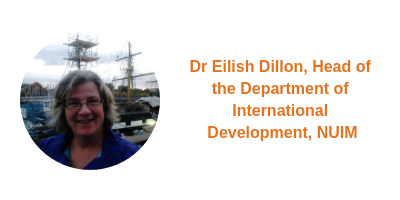
It’s very hard to argue with Ireland’s new policy for international development. No doubt, A Better World is what we all want. This policy appears to offer it all. Adopting a ‘there’s something for everyone in the audience’ type approach, there are repeated promises of more overseas development assistance. There’s talk of protecting civil society and a statement from the Taoiseach that this policy represents a “real step change in how the government approaches international development”. It’s little wonder that there has been near universal welcome for the policy from NGOs working in international development.
Like many others, I welcome aspects of this policy, including the emphasis on gender equality and sexual and reproductive health and rights, and the prioritisation of climate action. I welcome the promise of more funding for research and of more resources for implementing the Irish Government’s Development Education strategy.
But all is not as it seems. While the policy offers potential, there are also contradictions. On the one hand, it talks about the importance of the Sustainable Development Goals (SDGs), which emphasise global interconnectedness, and on the other, it predominantly frames international development as development cooperation and development assistance. This limits international development rather than seeing it as the result of an integrated set of social, economic and cultural relations, policies and practices that operate at local and global levels. As such, it is discussed as what happens in ‘Least Developed Countries’ for the poor, the vulnerable and those in most in need. They are framed in this policy in terms of ‘the furthest behind’. ‘We’, the Irish and the Irish government, are framed as ‘excellent’, ‘making a contribution’ and ‘leaders’. Our ‘generosity’ is acknowledged but our complicity in buttressing the global economic system which causes poverty, inequality and climate change in the first place is ignored. The policy talks about strengthening “domestic resource mobilisation and tax administrations in developing countries” but makes no reference to questions which have been raised about financial or tax justice issues in Ireland. The call for climate action to protect the most vulnerable, while laudable, seems to contradict calls by this government for concessions on our own climate commitments, and talk of concern for refugees and migrants makes no reference to problems with Direct Provision in Ireland. In fact, the statement which says that “we will follow through on the global compacts on migration and refugees to reaffirm the importance of the international refugee regime and ensure that migration is more safe, orderly and regular” (p.17) raises alarm bells in the light of well-publicised failures of governments to protect refugees, especially in recent years.
All of these messages repeat the long-standing assumption that development is something that we do for others, albeit in partnership, ‘down there’ (and mostly in Africa). Though there is some talk of coordination among departments in this work and mention of links between what’s happening domestically with what happens around the world, the main message is still that international development is about aid. Surely, it is about much more than that.
In order for this policy to represent the ‘step change’ the Taoiseach talks about, it would need to move away from a view of international development as being about what countries like Ireland do through development assistance. It would need, in my view, to acknowledge our role in an integrated global political and economic system which causes inequality and poverty in the first place but which needs to change if these challenges are to be meaningfully addressed. It would also need to make a shift from seeing us as ‘leaders’ to recognising the ‘laggards’ that we often are and seeing ‘others’ as victims to recognising the activists and agents of change that they often are.
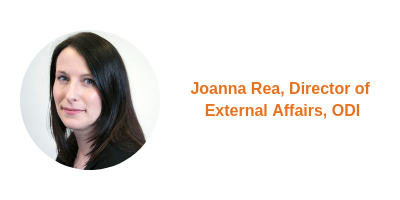
A Better World sets out a bold and ambitious plan for Ireland’s role in tackling some of the world’s greatest challenges. While other countries turn inward with many expressing their aid programme in terms of how it benefits their own narrow self-interest, Irish Aid’s strategy is firmly and refreshingly rooted in a commitment to multilateralism and focused on delivering the Sustainable Development Goals (SDGs).
The strategy also plays to Ireland’s strengths, with its focus on reaching the furthest behind first. Recent research by ODI identifies Ireland as the most efficient aid donor in its focus on the poorest and most vulnerable people, while forthcoming analysis also ranks Ireland highly in how principled its aid programme is. Irish Aid must maintain this approach and reputation as it expands its work.
Attention will now rightly turn to implementation. The strategy’s success will depend, critically, on securing the support of the Irish public and bringing them on the path to 2030. Grounding the strategy in Ireland’s history and experience and the public consultations that informed the strategy will certainly help, but much greater and on-going public engagement will be needed to avoid the opposition that other countries like the UK have faced when they increased their aid budget to meet the 0.7% target.
Moreover, as the strategy notes, the priority issues identified will not be solved by one country alone; at a time when the international system is fractured, it will be crucial for Irish Aid to reach out and work with others. It must form new coalitions and partnerships at the OECD, the EU and UN, and with new aid providers and civil society to focus efforts and accelerate action. With only 11 years to achieve the promise of Agenda 2030, there is no time to waste. Irish Aid must seize every opportunity to advance the delivery of its own ambitious plans and encourage other governments to meet the high bar that this new strategy sets.
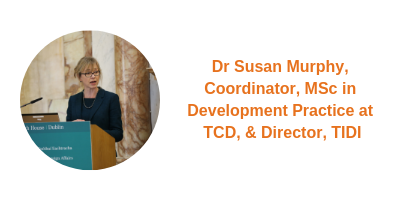
The launch of A Better World: Ireland’s Policy for International Development represents a delicate balance between continuity and change - it seeks to maintain, protect and nurture development cooperation interventions that have defined Irish Aid’s development programme over many decades; whilst at the same time broadening and deepening priority areas and interventions in light of the shifting landscape of development cooperation and global challenges.
At a time where many States are questioning their global and international commitments and obligations, this policy is, I suggest, a brave and bold statement of the intent of the Irish State to not only maintain its commitments to development cooperation, but to radically increase its portfolio of activities and influence in this space. Rather than reduce or dilute its commitment to universal human rights and gender equality, it has positioned the pursuit of inclusion, empowerment and gender equality as a core priority. Rather than focus exclusively on national interests, it will seek to lead in the area of sustainable development at home and abroad. Further, it explicitly recognises the complexity and interconnection of development and humanitarian practice, and the integrated and interrelated nature of the ambitions of the Sustainable Development Goals (SDGs) across the economic, societal and ecological pillars of sustainable development and humanitarian practice.
The policy is principle-based, seeking to actualise a clear and consistent ethical approach. It is firmly grounded in the normative framework of the sustainable development goals – to leave no one behind, starting with the furthest behind first – with a strong commitment to regional and multi-lateral institutions and systems that seek the protection and promotion of human rights and the rule of law. Further, it is demanding, recognising the need to improve coherence across government, and indeed makes several recommendations throughout the text on ways in which a ‘whole of government’ approach can be actualised through greater engagement across departments, priorities and policies.
It is deeply ambitious, firmly committing Ireland to achieving the United Nations target of allocating 0.7% of Gross National Income (GNI) to official development assistance by 2030. Yet it is also pragmatic, carefully mapping the degree to which the landscape of development cooperation practice has shifted over the last decade. Further, in recognition of the complexity, uncertainty, and shifting nature of the development cooperation landscape, it provides a refreshing and ambitious vision for embedding research and learning into all aspects of development theory and practice.
Prioritising an increased engagement with research institutions and a commitment to education and learning points, I suggest, to an internal logic and coherence within this framework that may support the delicate balance required between pragmatism and ambition – that can facilitate the promotion of ambitious priorities within the complex realities of the development space. However, it will be imperative that the focus on research and learning is engaged and inclusive – ensuring research design and methods allow for cooperation and co-creation of research questions and approaches; that support the collection of rich, diverse, and detailed evidence bases; that recognise the importance of collaborating with local participants to establish common understandings and translate the evidence based insights into viable operational activities/programs/policies that are practical, contextually relevant, situated, and ethically sound.
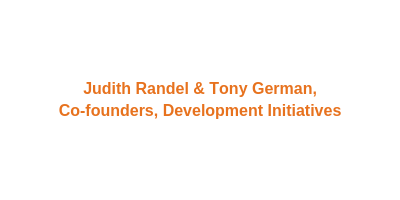
The launch of Ireland’s A Better World policy by the Taoiseach, Tánaiste and Minister Ciaran Cannon sends a strong and welcome message on Ireland’s commitment to deliver on Agenda 2030 pledges to leave no one behind and reach the furthest behind first.
The policy document is spot on in highlighting the importance of harnessing data. What this must mean is a requirement that everyone who spends Irish aid – government, business, academic institution or CSO – should put in place specific mechanisms to measure how the poorest 20% of people are being reached by the goods, services, rights or livelihood opportunities they are delivering.
Irish Aid will need the capacity to explain to an increasing number of partners, including other government departments and the private sector, what reaching those furthest behind looks like – not just in social sectors but in energy, agriculture, financial services.
We know that whilst growth is a necessary condition for reducing poverty, it is not sufficient. Despite international commitments on inclusive, broad based and pro poor growth, the poorest 20% globally and in most countries have fallen further behind. Sustainable Development Goal (SDG) 10 explicitly requires faster than average progress for the poorest. Ireland can use its new policy to provide leadership internationally to deliver on this pledge – and to consider how the universal imperative to leave no one behind works both at home as well as overseas.
Irish leadership on reaching the poorest will be substantially strengthened by its commitment to deliver on the 0.7% ODA target. Enshrining this pledge in law would not be easy. But once done it acts as a bulwark against inevitable headwinds. Simon Coveney is exactly right to note that reaching the UN target will involve difficult choices – but also to say it is ‘a measure of who we should be and who we want to be’.
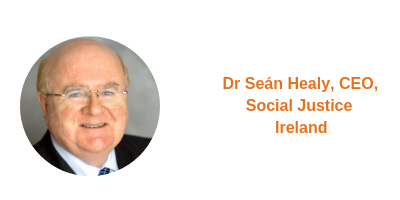
Social Justice Ireland welcomes the publication of A Better World: Ireland’s Policy for International Development, which outlines the Government’s commitment to reaching the UN target of allocating 0.7% of our GNI to official development assistance by 2030. The reiteration of the commitment to Ireland’s ODA target is welcome, and Government is to be commended for setting a date by which it will meet this target.
However, in order to maximise the impact of our Overseas Development Assistance (ODA) programme and to assist developing countries in reaching the Sustainable Development Goals, we urge Government to be ambitious and frontload investment between now and 2025. This would bring our ODA commitment in line with Global Ireland, the strategy for doubling the scope and impact of Ireland’s global footprint and influence by 2025.
It should be noted that since 2008 the ODA budget has been a focus of government cuts and has fallen by more than 11 per cent. While this fall was disappointing, Social Justice Ireland strongly welcomed the move in Budget 2019 to increase the ODA budget by approximately €110m – a significant increase in nominal monetary terms and a firm step in the right direction. The publication of A Better World is an opportune time for Government to be ambitious.
Rebuilding our commitment to ODA and honouring the UN target should be important policy paths for Ireland to pursue in the coming years. Not only would its achievement be a major success for government and an important element in the delivery of promises made but it would also be of significance internationally. Ireland’s success would not only provide additional assistance to needy countries but would also provide leadership to those other European countries who do not meet the target.
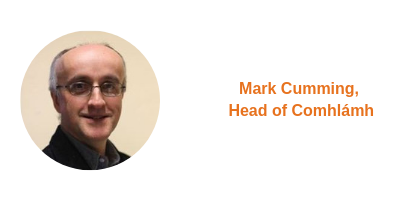
Comhlámh welcomes the publication of Ireland’s new international development policy, A Better World.
We recognise the commitment to reach our 0.7% target of GNI, but regret the absence of agreed milestones to achieving this;
We acknowledge the references to Ireland’s values in the policy: however, we see some conflict in these, between Ireland’s commitment to aid others and our geopolitical interests. We would welcome a more specific articulation of Ireland’s values, so that any future decision-making on the direction of policy, programming, and funding could be gauged against these;
We welcome the commitment to the Sustainable Development Goals (SDGs) and to “Reach the Furthest Behind First”. We believe that volunteerism, arising from active, engaged citizens, is an integral thread in the fabric of society and key to reaching those furthest behind. As such, we would have liked to have seen a greater focus on volunteerism as a cross-cutting issue in the policy;
We are concerned that a focus on the ‘competing priorities’ of supporting those left behind in Ireland, versus those left behind in the Global South, creates an invidious choice for the Irish public. We would have liked to have seen an analysis that posits the SDGs as universal, with issues of poverty, exclusion and marginalisation being interconnected and to be tackled here in Ireland and in countries of the Global South;
We commend the political support for civil society and the need to protect the space for civil society. Development education is vitally important to mobilising and sustaining public support for inclusive development, and we would have welcomed a stronger articulation of its central role in the new policy;
We are pleased that the policy recognises the particular role and place of returned international volunteers in development cooperation. They have enormous potential to act as peer educators on their return to Ireland, shaping informed discussions on development issues and making an ongoing contribution to our country’s work to address global poverty and social exclusion;
We commend the decision to review the Volunteering Initiative and see this as an opportunity to embody principles of reciprocity and solidarity that recognise the interdependence of the Global North and Global South.
The opinions expressed in this blog are the authors’ own and do not necessarily reflect the views of Dóchas.